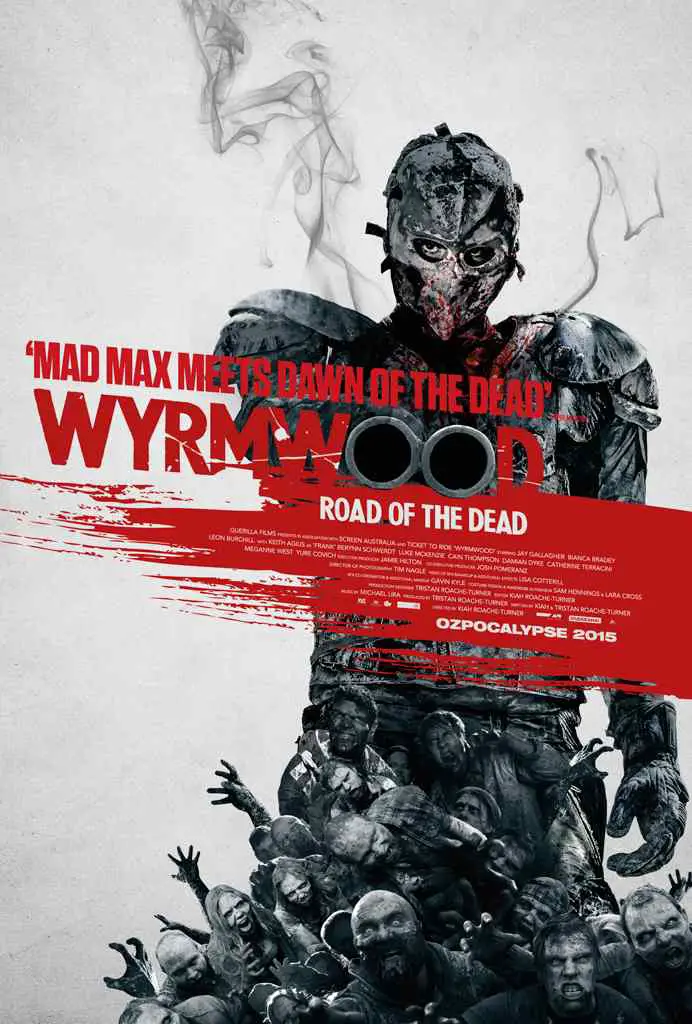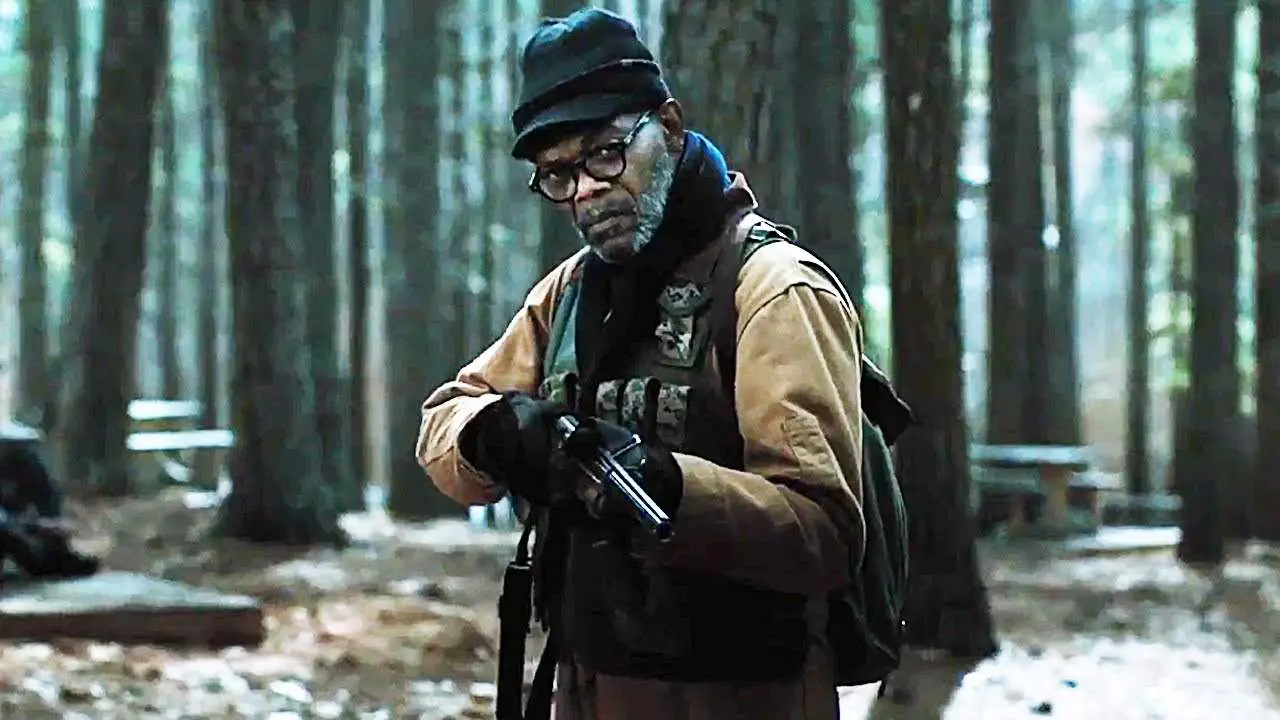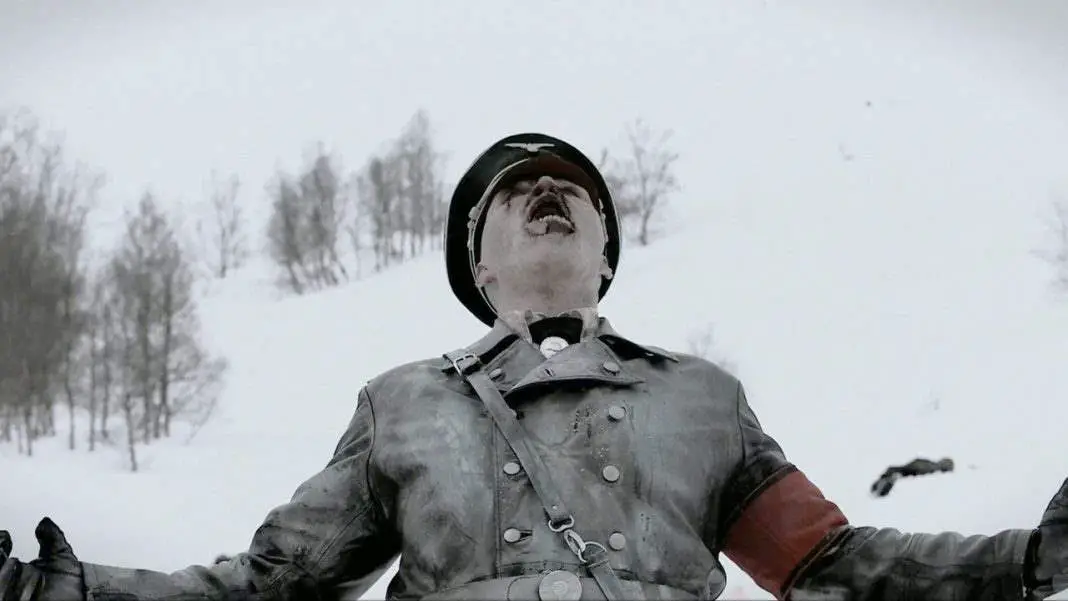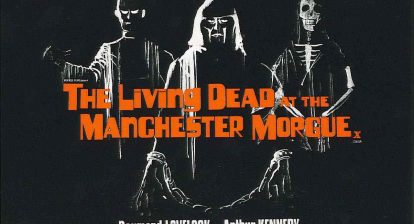The ending of George A. Romero’s Night of the Living Dead is iconic. Ben, as brilliantly played by Duane Jones, goes to the window while an all-white militia is sweeping toward the farmhouse, head-shotting as many zombies as they can. One of them spots Ben, a black man, in the window and shoots him. It’s never clear whether they mistook Ben for a zombie or they saw an opportunity to kill a black man and took it. Romero never intended that moment to be read in this way, and Venezuelan writer-director Flavio Pedota finds himself in a similar situation with his zombie flick Infection.
In Romero’s introduction to the collection of zombie short fiction, Nights of the Living Dead: An Anthology, he admitted, Jones got the part because he was “hands down, the best, within our puny budget, to play it” (xvi). I quoted that same line in my review of Day of the Dead: Bloodline, and I still believe, “The thing with allegories and politics in film: They’re there whether the creators intended them or not.” Pedota, unlike Bloodline director Hèctor Hernández Vicens, lucked into the best part of his film.
Anytime before COVID-19 became a Pandemic, one of the early scenes in Infection wouldn’t be so scary. A nurse is headed out after her shift, rushing to catch a flight. The first zombie of the titular “infection” rolls by, chained to a stretcher. He coughs directly into the nurse’s face. The camera follows her as she boards her flight, coughing. It’s terrifying because it echoes our current reality so accurately.
There’s no way that Pedota could’ve known what was coming (and if he did, he damn well should’ve told someone) in the real world, but he takes a scientific approach to zombies in this film. Dr. Adam Vargas (Rubén Guevara) is the film’s reluctant hero. He retired to the countryside after — or maybe because of? The details are fuzzy — his wife’s terminal illness. After she dies, he’s left to raise their son Miguel (Luca de Lima) alone.
The infection starts soon after Miguel leaves to spend the weekend riding horses at his mother’s parent’s ranch. Shortly before phones go down, Adam gets a call from his friend Carlos (Ronnie Nordenflycht) asking him to come to a secret military installation to work on a cure with World Health Organization expert Dr. Lucy Blake (Genna Chanelle Hayes). Adam is conflicted, but his neighbors force him to action.
Johnny (Leonidas Urbina) brings his wife Ana (Isabel Bertelsen) who “said an old man bit her” for treatment. Other neighbors congregate at the doctor’s house as well. When Ana turns, they’re forced to leave, and Adam begins his pilgrimage to save his son.
The journey Adam goes on in Infection takes much from the playbook of World War Z. Both stories are indebted to The Odyssey, in that all three are as much about the locations where their heroes stop as they are about the hero’s destination. In this case, Adam crosses Venezuela, giving Pedota the opportunity to show the different ways that people are reacting. None of them are baking bread like so many of us are now, but the characters in this film risk their lives to help one another.
Also See: Five Standout Episodes of The Casefile True Crime Podcast

While the story is working in many ways, it fails its female characters. As you may have picked up earlier, both of the film’s heroes, Adam and his neighbor Johnny, lose their wives in a way that drives their personal story. This is a harmful trope called “fridging.” The wives, who are barely named, die to advance their husband’s stories. This writing is bad beyond the sexism because two-dimensional characters that are killed to drive another character’s story rather than as a consequence of their own actions are uninteresting.
The movie has some struggles visually as well. The fights are shot in a Bourne Whateveracy way, with a lot of close ups on fist swinging, jaws snapping shut, and blows either landing or missing cut quickly together. It makes it hard to tell what’s happening and to whom, which is important in a movie where a bite (and in this film a spray of mucous as well) means death. This, and a helicopter that had to be CGI-ed in, were decisions that likely were the result of budgetary restraints.
What the budget can’t hurt is Pedota’s approach to his material in his script. Infection focuses on zombies from a scientific lens, trodding similar ground to Romero’s Day of the Dead (not to be confused with the previously mentioned remake, Day of the Dead Bloodline). Scientists and soldiers butt heads as they try to come up with a solution.
See Also: Unsolved Mysteries: 10 Fascinating Cases That Were Actually Solved
While not everything works, Pedota sticks the landing, making a powerful statement in a post-credit scene. A camera follows refugees leaving Venezuela as they describe the struggles they’ve had trying to immigrate since the infection. It’s a sober reminder that debates about whether to allow refugees from other countries aren’t about policies. They’re about the people whose lives they shape. It says a lot about Pedota’s ability as a filmmaker that he managed to graft this on to his zombie story in his first feature film. I’m looking forward to seeing what he does in the future.
Wicked Rating – 6/10
Director: Flavio Pedota
Writer: Flavio Pedota
Stars: Rubén Guevara, Luca de Lima, Leonidas Urbina, Genna Chanelle Hayes
Release: April 14, 2020 (Digital and DVD)
Studio/Production Company: Luz Creativa Producciones, Desenlace Films
Language: Spanish, English
Run Time: 97 minutes
Subgenre: Zombies
Follow us on social media: Twitter, Facebook, Instagram, and YouTube







